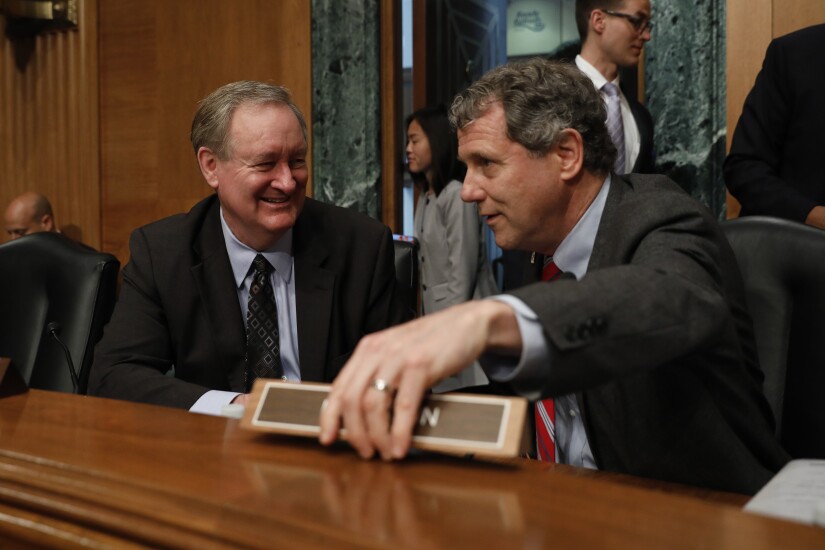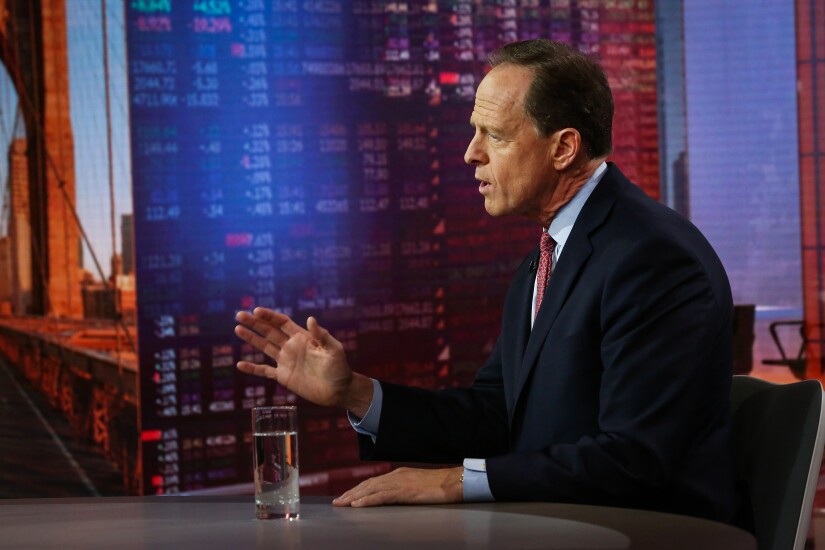
6 lawmakers who could chair a banking committee next year
The House Financial Services Committee will see new leadership as Chairman Jeb Hensarling, R-Texas, is not pursuing another term in Congress. If the GOP retains control of the House, numerous Republicans are
Meanwhile, even if the Senate remains in Republican hands, the Senate Banking Committee could also see new leadership. Chairman Mike Crapo, R-Idaho, may pursue another leadership post atop the Senate Finance Committee, now led by the retiring Sen. Orrin Hatch, R-Utah.
Here is a look at six members who could rise to the top of the banking committees:

Rep. Maxine Waters, D-Calif.
The committee under her leadership would likely challenge the Trump administration on a number of fronts while prioritizing stronger consumer protections and affordable housing initiatives. Yet Waters likely would not be able to legislate much with Trump in the White House and if Republicans hold the Senate.

Rep. Blaine Luetkemeyer, R-Mo.
He has advocated for the Senate to continue to take up measures to give banks relief from Dodd-Frank’s regulatory burdens, going beyond the reg relief bill that President Trump signed into law in May. Last year, Luetkemeyer called on bank regulators to draw up a list of guidance going back 20 years to determine whether any regulatory policies that were not subject to a formal rulemaking process should be submitted to lawmakers under the Congressional Review Act.

Rep. Patrick McHenry, R-N.C.
Under McHenry’s leadership, the committee could pay greater attention to policies dealing with fintech firms. He has previously backed legislation that would give fintech companies more flexibility to enable them to go to market sooner with their products, and he has supported creating “regulatory sandboxes” for fintechs.

Rep. Bill Huizenga, R-Mich.
Huizenga’s time on the committee has been largely focused on making it easier for companies to go public and he is supportive of legislation to facilitate initial coin offerings.

Sen. Pat Toomey, R-Pa.
The Pennsylvania senator is now the fourth most senior Republican on the panel. However, Sen. Richard Shelby, R-Ala., is already term-limited and therefore cannot run the committee. Meanwhile, Sen. Bob Corker, R-Tenn., has said he plans to leave Congress.
Toomey has advocated for ending the conservatorship of the mortgage giants Fannie Mae and Freddie Mac, ending the orderly liquidation authority, rolling back Consumer Financial Protection Bureau rules and guidance, and easing regulatory burdens in the capital markets. But as Republicans are expected to only maintain a slim majority in the Senate, Toomey would need to find Democrats to support his legislation if he wants it to pass the 60-vote threshold in the chamber.

Sen. Sherrod Brown, D-Ohio
Like Waters, Brown represents the more progressive wing of the Democratic party, which would be a stark contrast from the committee’s current leadership. While four moderate Democrats on the committee were able to come up with a compromise with Crapo on a regulatory relief bill, Brown decided he couldn’t support what he called a “giveaway that loosens rules for the same big banks that helped crash the economy a decade ago.”





